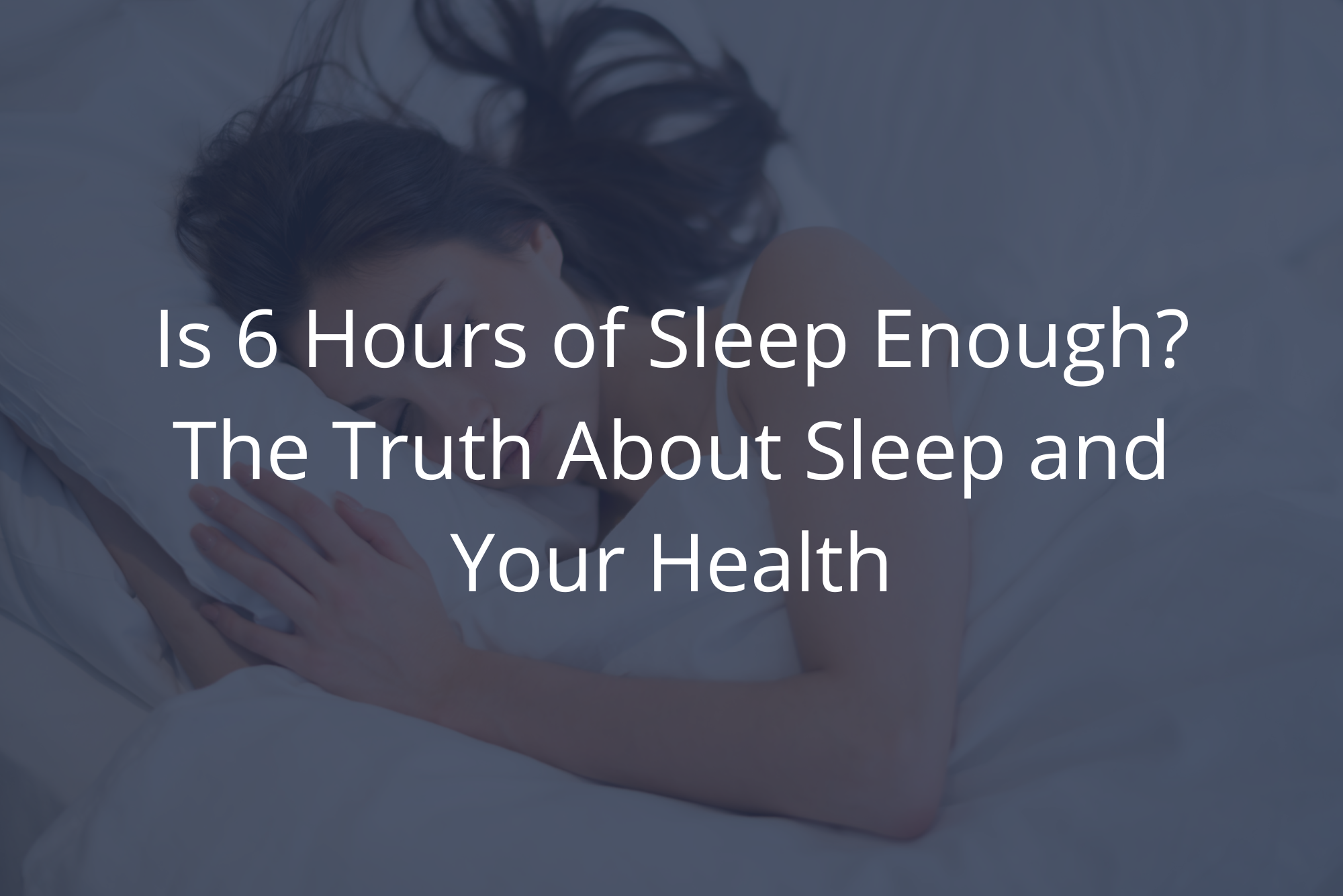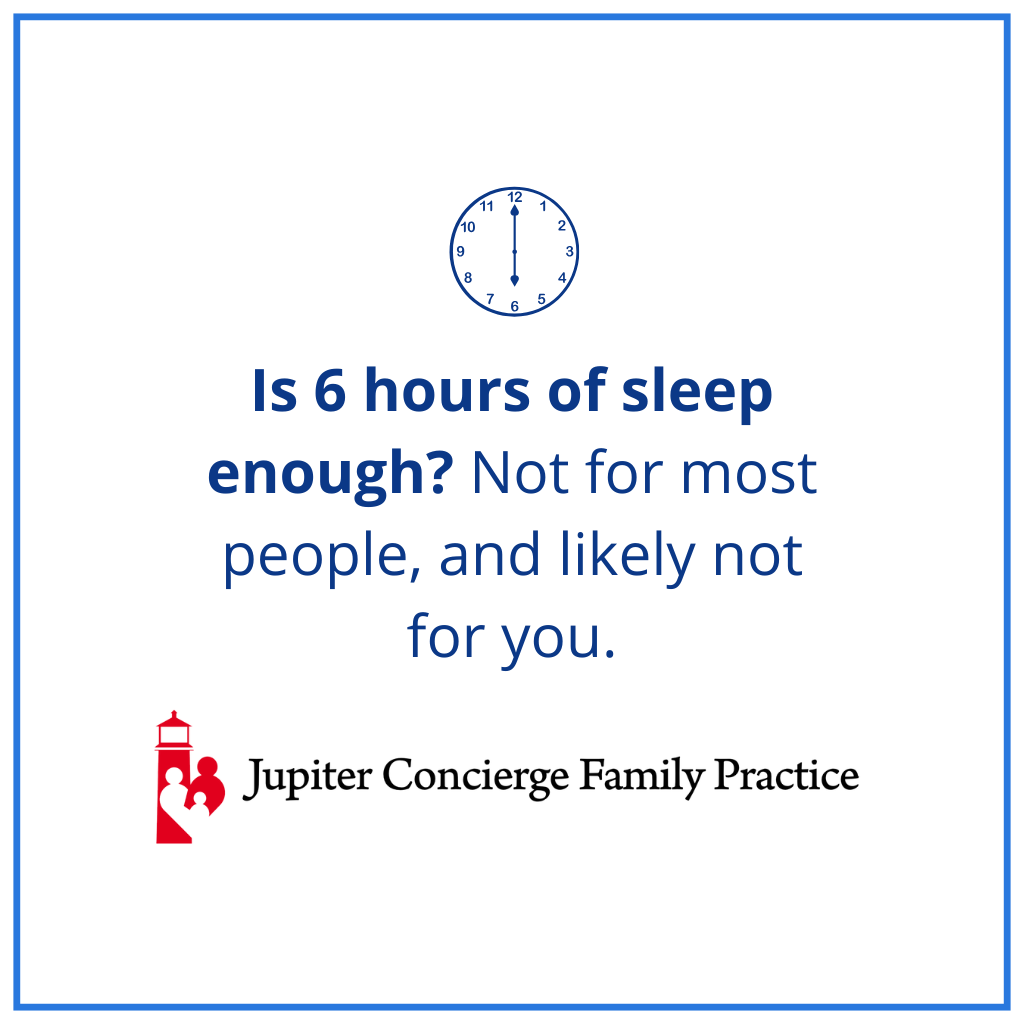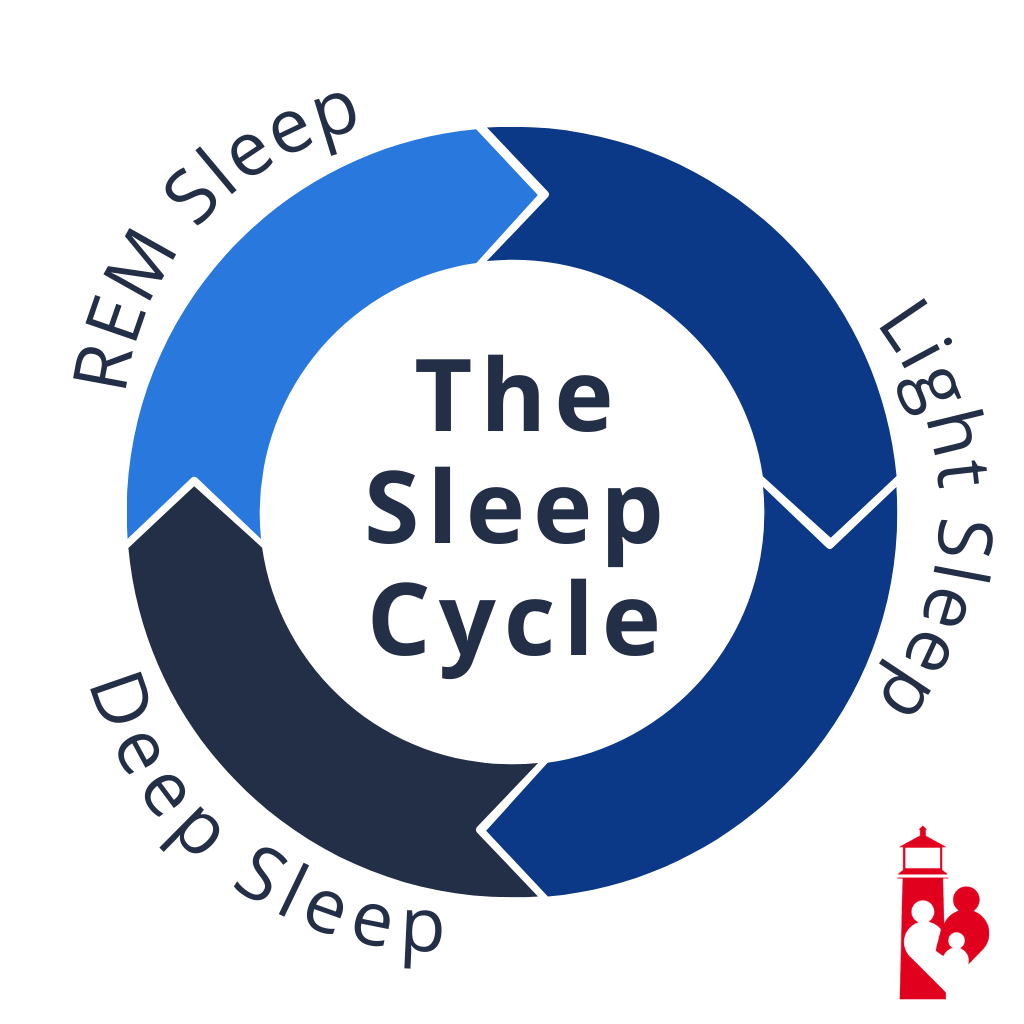
Is 6 hours of sleep enough? Is 8 really optimal? Are you a sleep champion if you get 10?
Not everyone needs the same amount of shuteye each night, so we can’t offer a straightforward “sleep prescription” that’s effective for all individuals. Instead, I advise my patients to consider how they feel.
If you consistently wake refreshed and remain energized throughout the day, you’re likely getting enough quality rest. Conversely, afternoon slumps and coffee runs throughout the day may signal the opposite.
Even this criteria, however, isn’t foolproof. If a patient tells me they feel fine after sleeping 6 hours a night for weeks, I’ll have questions.
So-called “short sleepers” — people who function optimally on little sleep — are so rare that most doctors never encounter one in all their years of practice. What’s far more common is for people to feel artificially energetic due to adrenaline, cortisol, or caffeine as their body tries to compensate for a lack of rest.
So, is 6 hours of sleep enough? Not for most people, and likely not for you. Let’s take a look at why, and how to evaluate whether you’re getting the sleep you need.
Why 6 Hours of Sleep Isn’t Enough for Most People
Our sleep requirements change dramatically throughout our lives.
As newborns, we can sleep for over 20 hours per day. This gradually decreases as we age:
- Ages 3–5: 10–13 hours (plus naps)
- Ages 6–12: 9–12 hours
- Ages 13–18: 8–10 hours
- Adults 18+: 7 or more hours
Most adults need 7–9 hours of sleep per night. If you’re only getting 6 hours but haven’t noticed adverse effects, that doesn’t necessarily mean your body is happy. More likely, various background factors you can’t feel could be affecting your health.
Sleep is when your body resets and your brain “defragments,” like a computer cleaning and organizing its files. Your body heals, performs essential maintenance, and restores itself for the day ahead. To achieve these benefits, you need not just enough sleep but good-quality sleep.
During sleep, you pass through multiple sleep stages: light sleep, deep sleep, and REM sleep. Only 2–3 hours of total sleep time is spent in the deeper stages, where vital repair processes occur.
If you wake up frequently, toss and turn, or hover in the lighter phase, your body never progresses to the stages that bring true rest and repair. In these cases, even 10 hours won’t leave you feeling energized.
Chronic sleep deprivation — whether it’s chronic poor-quality sleep or regularly getting just 6 hours — can have significant short- and long-term consequences. Over time, insufficient sleep increases the risk of chronic conditions like diabetes, heart disease, and cognitive decline.
Sleep Quality vs. Quantity: An Example
The question “Is 6 hours of sleep enough?” can miss the mark because it focuses solely on quantity. For example, someone getting 7 hours of high-quality sleep will almost always feel better than someone getting 10 hours of poor sleep.
Consider a person with untreated sleep apnea. Maybe they technically sleep for 8 hours, but they wake up exhausted each morning. They struggle with brain fog and concentration throughout the day and may even fall asleep at their desk, on the couch, or at the wheel. Yet they’re getting “enough” sleep.
Because they stop breathing multiple times per night, a person with untreated sleep apnea won’t feel refreshed even with extra naps or earlier bedtimes. Though they likely don’t remember, their frequent waking episodes prevent them from reaching the restorative stages of sleep.
In many cases, however, the same person who begins using a CPAP machine or other sleep apnea treatment might sleep for fewer hours but wake up feeling more energetic than they have in years.
Though sleep apnea isn’t the sole cause of poor sleep quality, it illustrates the point that quality must accompany quantity to produce the benefits your body and brain need.
Tips for Improving Your Sleep Quality
Many people look for a quick fix for sleep, like a magic pill to cure what ails them. But consistent habits and a supportive sleep environment are the best ways to improve sleep quality.
I’ve previously written about strategies for improved sleep hygiene, which include:
- Sticking to a schedule: Go to bed and wake up at the same time every day, even on weekends.
- Taking care with alcohol: Limit your alcohol intake to 1–2 drinks in the evening, and distance those drinks from bedtime by at least 2 hours. Alcohol may make you feel tired, but it also disrupts the healthy progress through the stages of sleep.
- Creating a calming routine: Reduce screen time and blue light exposure 1–2 hours before bed. Opt for relaxing pastimes like reading or meditation instead of stimulating activities like watching the news.
- Optimizing your sleep environment: Keep your bedroom dark, cool, and quiet. Invest in comfortable bedding and supportive pillows.
These foundational steps make a world of difference. If you continue to struggle with sleep despite making these changes, however, it’s time to seek professional help.
When to Seek Help for Sleep Issues
If you’re frequently tired, lethargic, or struggling to maintain energy despite getting what should be enough sleep, investigate further.
I always start by reviewing a patient’s sleep habits and history, including:
- What they’re already doing to address the issue
- Their sleep history and bedtime routines
- Whether they’re taking medications or using alcohol in ways that could affect sleep
- What their sleep partner observes (snoring, breathing pauses, restless sleep, etc.)
While I may sometimes order lab tests to check for conditions like diabetes, which can interfere with sleep, the most helpful information usually comes from a thorough conversation. Once we identify the cause — whether it’s a behavioral issue or a medical condition like acid reflux — we can treat the source of the problem and achieve the best long-term results.
While occasionally necessary, sleep medication should always be a last resort — and a short-term one.
Is 6 Hours of Sleep Enough? The Bottom Line
So, is 6 hours of sleep enough? Probably not.
If you’re struggling with sleep, start by building good habits and see if you can increase your quantity and quality. If that doesn’t work, seek help. Your sleep is a cornerstone of your health, and it’s too important to leave to chance.

Dr. David Rosenberg
Dr. Rosenberg is a board-certified Family Physician. He received his medical degree from the University of Miami in 1988 and completed his residency in Family Medicine at The Washington Hospital in Washington, Pennsylvania in 1991. After practicing Emergency Medicine at Palm Beach Gardens Medical Center for two years, he started private practice in Jupiter, in 1993. He is an avid baseball fan and Beatles fanatic, since he was 8 years old. He has been married to his wife, Mary, since 1985 and has three grown children.
David completed additional studies at Mercer University, Macon, Georgia and obtained a BS in Chemistry in 1983.
“My interests include tennis, snow skiing, Pilates and self-development.”


